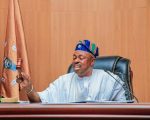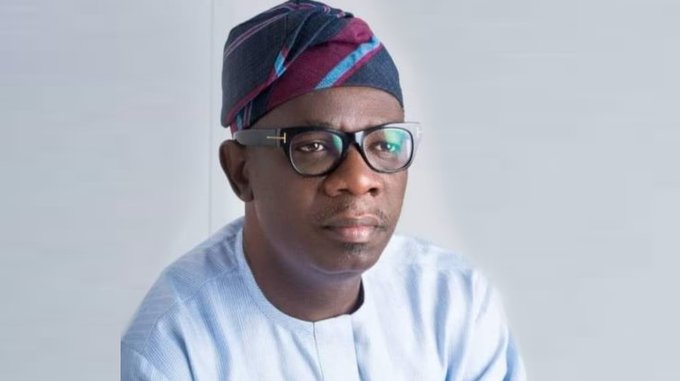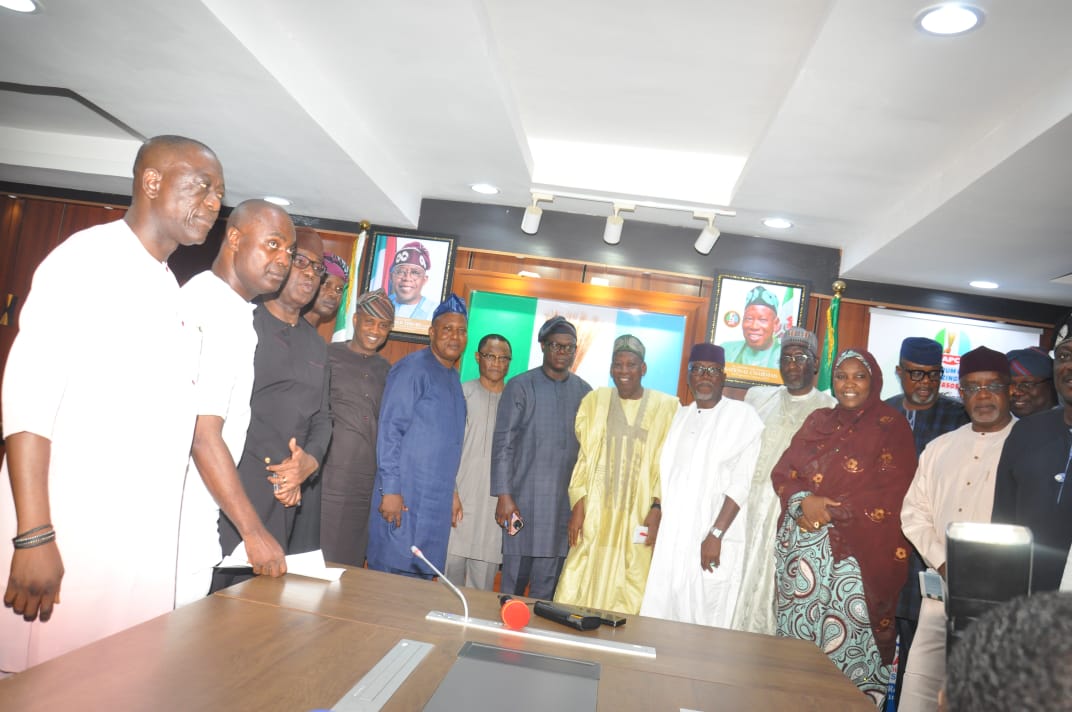A member of NASS’ COmmittee on Appropriations and Chairman of the Senate Committee on Media and Public Affairs, Senator Aliyu Sabi-Abdullahi in an interview with ‘The Punch’ has lamented that despite a budget of N125 billion, the legislature still lacked adequate financial resources. Excerpts:
The 2017 budget was raised from N7.298tn to N7.441tn. Does the National Assembly have the power to do that?
It is within the power of the National Assembly. In the course of discussions, whatever that is brought (presented) by the executive in line with Sections 80 and 81 is actually a proposal. The Constitution calls it “estimates” and when you say estimates, it is like a suggestion or proposal. So, in this case, in line with its constitutional mandate, what the National Assembly did was to first look at the Medium Term Expenditure Framework and Fiscal Strategy Paper under Fiscal Responsibility Act. It is at that level that we look at the various assumptions – benchmark, crude oil price, exchange rate and the output of the major source of our revenue, which is oil. We retained the exchange rate of N305 (to the dollar) and the oil output of 2.2 million barrels per day as suggested. But in terms of the exchange rate, we saw that there was a huge disparity in the prices of crude oil. We saw that the prices were hovering between $50 and $53 (per barrel) for almost half of the year. We felt that it was soothing enough and rather than adopt the proposal by the executive, which was $42.5, we added $2 to make it $44.5. The portion accruable to the Federal Government as a result of the $2, is the reason why we increased the budget.
The National Assembly, in the course of engaging the ministries, departments and agencies and legislative interventions, realised that there were critical areas that had not been captured in the proposal submitted to the National Assembly. It was in that context that we decided to make allocations for those critical sectors, notably the Nnamdi Azikiwe International Airport’s second runway, knowing that we had just concluded the emergency repair of the (only) runway with all the attendant noise and inconveniences with relocating passengers to Kaduna (airport). We decided that we didn’t have to wait for another emergency situation; it was time we put on board the second runway arrangement and we made provision for it – about N15bn. We also realised that there were issues with the National Youth Service Corps and the scheme is very important to national integration and the unity of this country. We decided to fill the shortage in terms of the emolument and mobilisation. You will agree with me that there are a lot of youths still waiting for mobilsation. I think about N5bn was allocated to that. There is also the Aladja Rail Line from Itakpe (Kogi State) that was supposed to transport steel and iron ore. The rail line has been abandoned since the 90s. Now that the government is talking about diversification of the economy and the fact that the government is looking at alternative mineral resources, we decided to fund the project.
The other aspect is that the infrastructural deficit is so huge. In terms of road, it is on record that there is a deficit of N1tn in terms of pending and abandoned projects. We decided to add N25bn to road projects. There is also the issue of the United Nations Educational, Scientific and Cultural Organisation; there is a particular fund that the government is supposed to pay to UNESCO to attract certain benefits. It is like a counterpart fund. That was also budgeted for. There are other issues I cannot remember now. Even the Nigerian military is a beneficiary of extra funding for security.
Overall, what the National Assembly did was patriotic, sensitive and we cannot sit down and claim that we have money when we have issues to address with the money.
The National Assembly increased its budget from N115bn to N125bn. Why is the legislature jacking up its budget at a time the government is talking about austerity measures due to economic recession?
What are the austerity measures? Is it an austerity budget? How much was the country’s budget in 2016 and how much is it this year? What is the inflation rate? People need to understand this. Even when people are saying that we have jacked up the budget; in nominal terms, we did but when you look at the actual terms, the budget is still below the budget that the National Assembly had some years back. If you look at the value of the currency today, then you will know that what has happened is not meeting the requirements of what the economy dictates. If other people’s budgets have been increased, why should ours not be increased to face the reality that our economy brings to us? Are they saying that we are not entitled to carrying out our duties? Are they saying that we are not entitled to spending government funds in the course of carrying out our responsibilities?
Why then has it been difficult to raise the minimum wage from N18,000 to N56,000 being demanded if the civil servants are also working for government and they are facing same economic realities?
The minimum wage (fixing) is not by us. The issue of minimum wage is not as simple as people think and that is why it is always a tripartite thing. People should not forget that the government is just one of the partners; the organised private sector and labour are there. That is why it is called national minimum wage.
And the National Assembly has always stood by the people; we have never been averse to it. It is not our duty to do the negotiation; it is the duty of the Federal Government and I think we have intervened several times and urged the parties to engage one another. To God be the glory, the parties have started the process of the engagement.
Simply because we have added N10bn to our budget, somebody is sitting somewhere crying blue murder. Like I told you, out of the N148bn (added to the budget), it means that over N130bn is going to various critical areas that, we, in our wisdom, thought national requirements that should be upgraded. Sometimes, it is a disservice and, in fact, I make bold to say that from what I have seen here, the National Assembly is actually underfunded.
With a budget of N125bn?
Yes, it is underfunded. Let me tell you: people like to borrow what suits them. If you want to borrow, borrow completely. People have been saying we are the highest paid legislature, which is a lie. Studies have been conducted by the National Institute for Legislative Studies and they show that we are not. In 2015 when we went for a climate change conference in Paris – we had the GLOBE, which is a platform for legislators in support of the climate change (campaign) – the senators from the United States who came had five professors/experts each on the subject matter. For that alone! From the research I have carried out, I am aware that they have very solid provisions for consultants on every subject matter.
I am a senator and when you bring an issue concerning petroleum, I should be able to contribute to the debate as it affects my constituents and the country generally. Who is supposed to advise me when I am not a petroleum engineer? The best you can ever be is to have insights into three professions. How many professions do we have within the context of the economy? And you must legislate, and you cannot legislate in ignorance; you must legislate from a very solid standpoint of knowledge with fact – well proven facts – so that by the time you legislate, it will work in the real world. You will not create problems for the people, you will not stifle them but give them the opportunity to express themselves and reach the peak of their innate potential that God has given to them. How can you do that without sound knowledge? If we legislate and the legislation goes wrong, Nigerians will blame us. Yet, when it comes to spending money for us to get the facts… When you think that knowledge is expensive, try ignorance. Even the legislative aides we are given are just to help us carry out the routine jobs we do. They do not and cannot provide for the heavily technical areas that we require people to give us expertise ideas in carrying out our mandate. The people who even make this noise, who are they?










